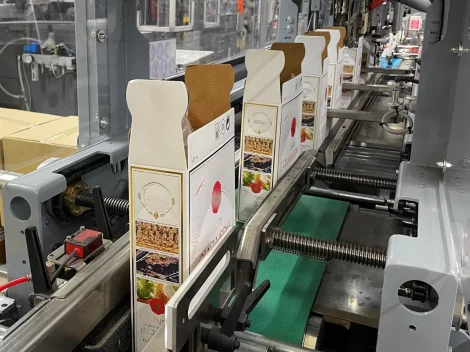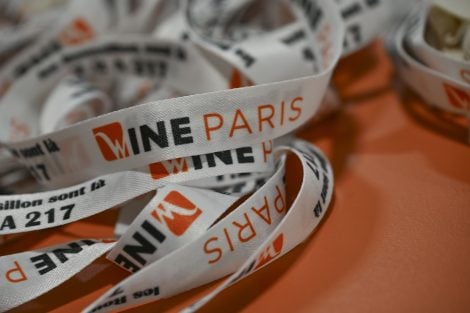2024 has not been a sparkling year, but one of consolidation for wine certifications: as of 31 December, just over 2 billion bottles had been released on the market. However, 2025 is already showing signs of greater strain: -3.3% in the first quarter, due to uncertainty surrounding US tariffs and the resulting caution from American operators.
This is the picture painted by the 2025 Annual Report from Valoritalia, the organisation that certifies 219 designations of origin, accounting for 56% of Italy’s quality wine production, worth over €9 billion.

Certifications hold strong despite the crisis
Valoritalia’s General Director, Giuseppe Liberatore, chooses to see the glass half full: “Despite the complex international context,” he emphasised, “2024 has proven to be a year of consolidation — not outstanding, but still positive — with 2.019 billion bottles released on the market. That’s a slight drop compared to 2023 (down 0.46%), but a 1.4% increase compared to the average of the last five years. This is a particularly meaningful figure that shows how the Italian supply chain has maintained the high volumes of 2021, which were achieved thanks to the unexpected consumption boom during the Covid era — over 110 million more bottles than in 2019 — a sign of our companies’ competitiveness even during challenging times.”
The last five years have indeed been disrupted by a series of unexpected events that continue to create economic uncertainty: from the Covid-19 pandemic, to two ongoing wars, and now the looming threat of US tariffs.

The shift towards easy-drinking wines
The report highlights shifting consumer preferences, with a gradual move away from red wines towards sparkling and easy-drinking options. Denominations with a majority of red wine saw a 6.8% contraction, while sparkling wines recorded a significant 5% increase. Meanwhile, DOCGs (Denominations of Controlled and Guaranteed Origin) posted a loss for the third consecutive year (-2.3%), as did IGTs (Typical Geographical Indications), down 6.3% after a powerful 16.5% surge in 2023. DOCs (Controlled Denominations of Origin), which in 2024 accounted for 58% of the certified wine value (equal to €5.35 billion), saw a 2.7% rise.
“The data shows a gradual rebalancing between supply and demand, where the competitiveness of denominations is no longer solely based on historical value, but on their ability to align with consumption trends increasingly oriented towards versatility,” commented Giuseppina Amodio, Chief Operating Officer at Valoritalia.
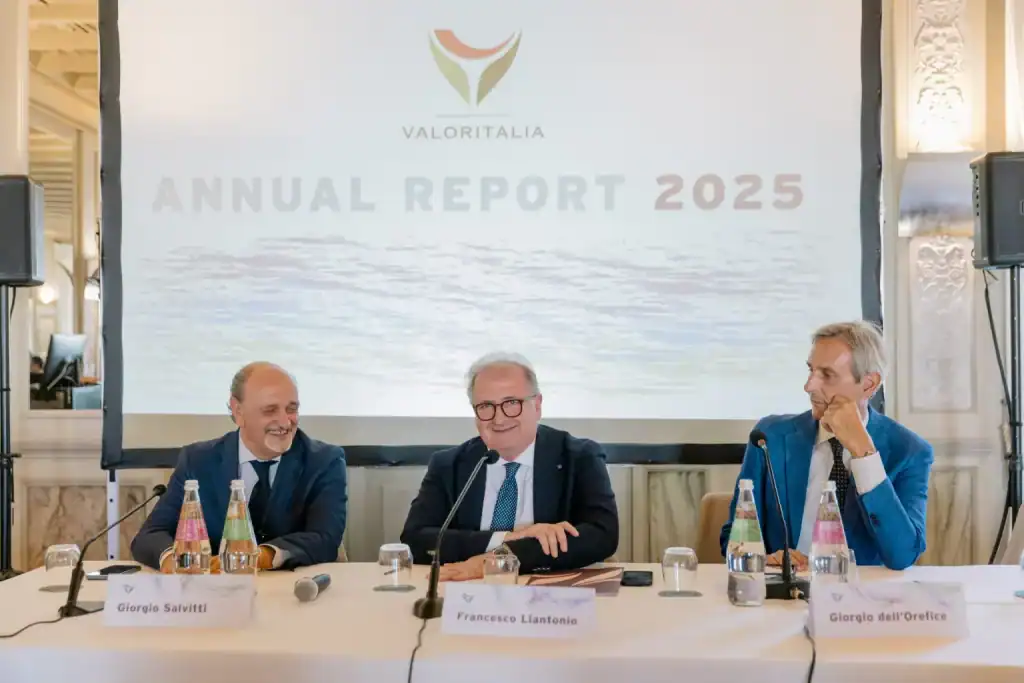
Too many denominations
Lastly, the issue of excessive denominations remains — a concern previously raised by the certification body. The report reveals that the smaller the denomination, the more volatile the volume tends to be. In fact, of the 219 denominations certified by Valoritalia, the top 20 account for 86% of bottled wine, the top 40 nearly 95%, while the bottom 139 barely make up 1.4%. The same imbalance is seen in business volume: only 12% of companies exceed €50 million in turnover, while the majority barely surpass €1 million.
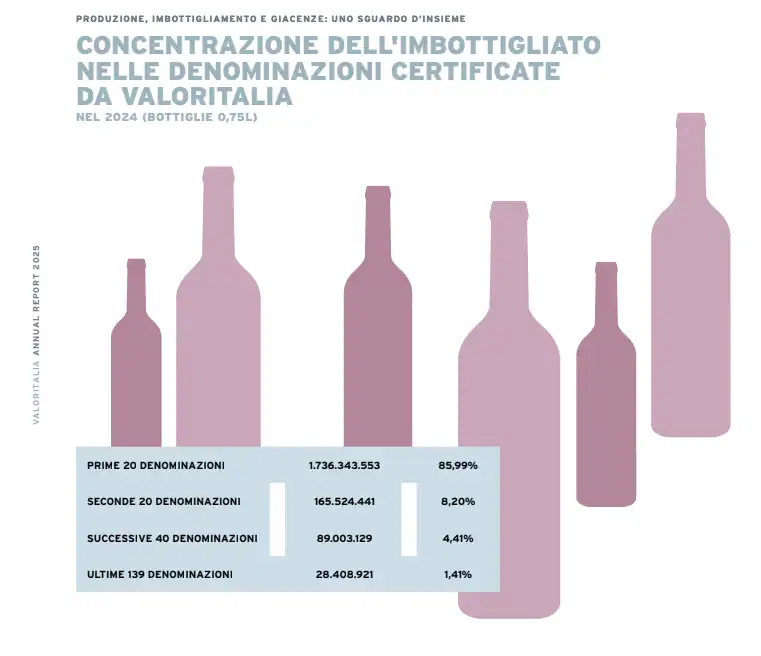
“The high number of denominations is a strength in terms of representation, but also a structural weakness if the organisational and dimensional aspects tied to consortium governance are not carefully considered,” commented Francesco Liantonio, President of Valoritalia. He continued: “A small denomination implies a limited operational capacity, meaning many struggle to fulfil the essential roles of protection, promotion, and enhancement. This is why a voluntary reform of the consortium system could be the turning point to bring decision-making unity back to Italy’s fragmented local realities. It’s a direction that is becoming increasingly essential, especially in this time of geopolitical uncertainty, declining consumption, and the ongoing threat of US tariffs. If we want to secure a future for our sector, we must seriously commit to tackling long-standing issues — starting from the foundations and having the courage to question organisational choices and structures that today appear inadequate, if not outdated.”


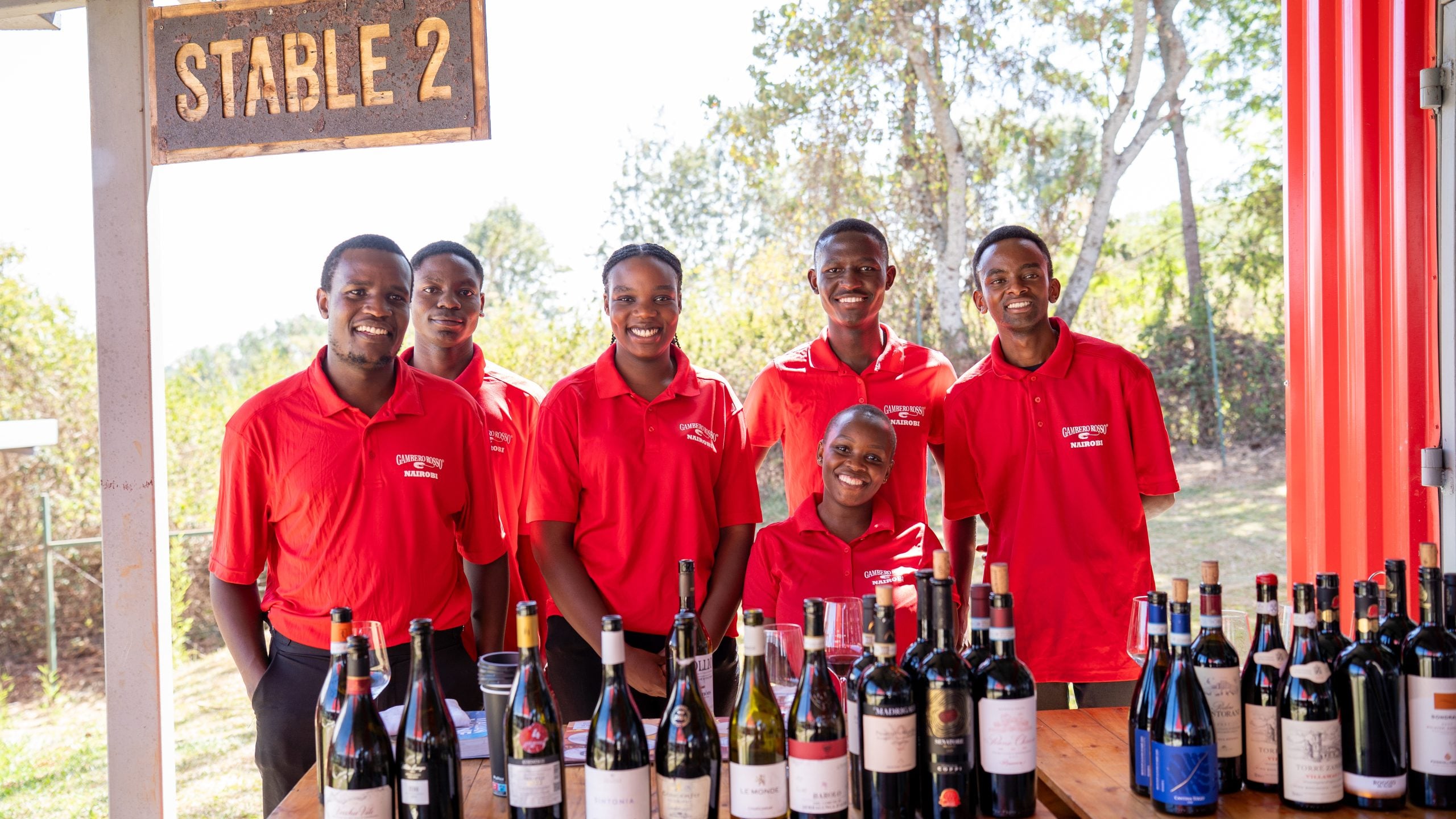 The Top Italian Wines Roadshow returns to Kenya
The Top Italian Wines Roadshow returns to Kenya Why 'restraint is a virtue' for a top Prosecco producer
Why 'restraint is a virtue' for a top Prosecco producer Gambero Rosso in Nigeria: a new strategic market for Italian wine
Gambero Rosso in Nigeria: a new strategic market for Italian wine Meet the Italian viticulturist who manages an English vineyard
Meet the Italian viticulturist who manages an English vineyard The Paris restaurant where a different tasting menu is served every day
The Paris restaurant where a different tasting menu is served every day

